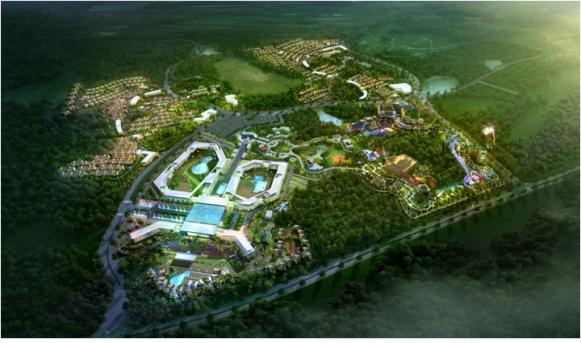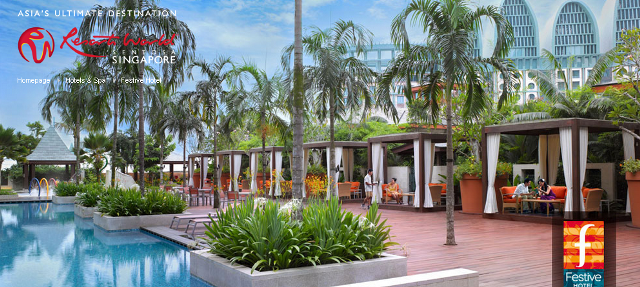|
Anhui Landing Holding Group Co., Ltd is an enterprise group possessing 12 billion RMB in assets and 21 subsidiaries. Landing International and Genting Singapore have invested in the Myths and History Theme Park in Jeju Island.
*Integrated Resorts (IRs) are multiplex resorts including casinos, hotels, theme parks and convention centers.
Earlier in December, Jeju province submitted a bill for casino supervision and management ordinance to Jeju council in order to lay the groundwork for the development of the Jeju casino industry. It seems that the local government has acknowledged the significance of Integrated Resort (IR) development and actively begun to consolidate IR operating infrastructure as casinos are important elements in attracting visitors, following the central government’s announcement on the stimulus package in August to support the establishment of integrated resorts in Jeju and Yeongjong-do in Korea.
Integrated Resorts (IR) are large-scaled multiplex tourism destinations that satisfy many different types of tours including business, family, leisure and entertainment with various facilities of casino, hotel, theme park, convention, exhibition, performance and etc. Following Singapore and Macao, many other Asian countries, such as Japan and Taiwan, have been experiencing a boom of IR developments and many IR projects are in process in Korea as well. However, due to a lack of understanding on the IR industry in Korea, there are critical arguments for and against casinos as a core element of IRs. Jeju also needs to resolve the controversy about casinos between the economic benefits and negative effects.
Singapore, a leading tourism country, has started to develop IRs earlier than others and has succeeded in operating two IRs since opening in 2010. Although Singapore is one of the most successful cases that achieved growth in both economic benefits and tourism revenues through the IR business, the country also experienced difficulties at the beginning stage. Most Singaporeans were against casinos that allow entrance for local residents and there were sustained heated arguments. Then, how could Singapore resolve the issues regarding the regulations of the complicated and dynamic gaming industry?
Conservative Singapore chose IR as a key to overcoming its economic difficulty
Singapore had repeatedly turned down proposals to open an IR as the government’s policy for many years had been not to have a casino. The first proposal came up in 1985 when Singapore experienced a severe recession but it had been turned down. Another proposal raised in 2002 had been also refused due to negative social impacts and seriousness of organized crimes.
However, when a proposal of IR development came up again in 2004, Singapore government decided to take a consideration on the proposal as they were seeking measures for decline in growth of service industry and number of foreign visitors in the country. Although Singapore government had discussions on the issues with the public for more than a year, the opposing opinions were still aggressive. The main opposing reasons were problem gambling, the related crimes, following social impacts such as broken families and unemployment, and intangible losses like the impact on Singapore’s brand name and social value.
| |
 |
|
| ▲ Myths and History Theme Park, Andeok-myeon. Image courtesy JDC |
Singapore combats public's anti-casino stance
Despite of the opposing public opinion, the government, which was desperate to boost its tourism industry at the time and for Singapore ‘to have the X-factor’ (PM Lee Hsien Loong Speech, 18 Apr 2005), tried to persuade the public by highlighting the huge economic benefits from IR. The benefits that the government highlighted were as follows: Firstly, it is able to reduce the urban development period from 15 years to 4 years with IR development to spur economic benefits.
Secondly, approximately 35,000 jobs can be created within the two IRs as well as in other related industries. In addition, it could also attract more visitors once Singapore can be positioned as a center of the MICE industry after attracting IRs. The government also highlighted that if Singapore decided not to go ahead, the best proposals for the IR would most likely go somewhere else in the region and Singapore would have to play catch up later on. After the constant efforts of the government, at a special Cabinet meeting convened in April 2005, it was finally decided to proceed with the IRs.
Singapore minimized negative effects with CCA and CRA
Once the decision was made on the IR developments, Singapore government had put all their efforts to minimize the negative effects of casino in advance.
Singapore’s Casino Control Act (CCA) was enacted in 2006 to regulate the operations and gaming in casinos, in preparation for the opening of the IRs. The objectives of CCA can be broadly categorized into three areas:
Firstly, it establishes the incorporation of the Casino Regulatory Authority of Singapore (CRA) which is empowered to license and regulate the operations of casinos. Secondly, the Act set out a regulatory regime for the casino operator and related business parties. Lastly, the Act provides social safeguards to counter the issue of problem gambling.
The social safeguards are very specific to protect the local residents from the negative effects of casino. For instance, the safeguard restricts admission of locals with high entrance fee of $100 SG per day or $2,000 SG a year. It also restricts entrance of minors below the age of 21 and prohibits extended credit to locals as well as installation of ATMs in casinos. Also, the country established the National Council on Problem Gambling (NCPG) and empowered to stop problem gamblers from entering casinos.
Beside the CCA, Singapore government had put all efforts on establishing the Casino Regulatory Authority of Singapore (CRA). To establish CRA, Singapore had studied the regulatory practices of well-known casino jurisdictions in Nevada, Bahamas, Macau, Australia and London and underwent discussion with ministers and research bodies for numbers of times. The CRA is responsible for licensing casino operators and regulating their operations as well as supervising the accounting procedure and casino offences. It is also the authority that enhances casino providers to embrace corporate social responsibility to counteract the negative social impacts of commercial gambling.
It is worthwhile to notice on the collaboration of CRA with other government agencies. CRA has cooperated with the Police to prevent, detect and deal with casino-related crime and as a result, crime reported in the casinos appeared less than 1% of overall crime in Singapore after IRs were established. Moreover, CRA works closely with the Ministry of Social and Family Development (MSF) and the NCPG to ensure that the social safeguards can be effective in minimizing the harm of casino gambling. Based on the collaboration of CRA and other agencies, the government has been regularly reviewing and improving the casino regulatory regime and laws.
As a result of Singapore’s efforts, since the two IRs opened in 2010, they supported the economy by creating more than 40,000 jobs in a wide range of sectors such as retail, F&B and transportation. Majority of the IR’s outsourcing or procurement contracts were secured by the local Small and Medium Enterprises (SMEs) in areas such as floral services, show set and prop design, laundry, catering, transportation and security. The international visitor arrivals have been increased every year. It has been surpassed 13 million people in 2011, 14.5 million in 2012 (10.1% year-on-year growth) and 15.6 million in 2013 (7% year-on-year growth). Tourism receipts also reached an all-time high of S$22.3 billion in 2011 (18.2 trillion KRW), S$23.1 billion in 2012 (18.9 trillion KRW) and S$23.5 billion in 2013 (19.2 trillion KRW) .
Jeju finds a solution from Singapore’s model
Then what are the key factors that Jeju should learn from Singapore’s case? Firstly, it could be Singapore’s persuasion efforts that were shown from the communication process with the public. Once Singapore had decided to take the proposal on IRs and after weighed the pros and cons of casino they started to persuade the opposing public opinion with specific data of economic benefits. Secondly, it is also worth noticing Singapore’s thorough preparations in advance such as in-depth researches and the establishment of CCA and CRA, etc. Lastly, the casino supervision process is not only conducted by CRA but also collaborated with other agencies throughout the whole country and in such circumstances the regulations have regularly been reviewed and improved.
“We need to do many things to become a global city. A casino by itself is not essential to this vision. But an IR is not just a casino. An IR is one significant idea we must consider, that will help us reinvent Singapore” said Lee Hsien Loong, the Prime Minister of Singapore, during his announcement on the decision of IR development in April 2005.
Experts said “the pros and cons of casinos should be fully reviewed but it is not appropriate to identify the IR industry as casinos” and added “the huge benefits from IRs should not be ignored only because of casinos, a part of elements in IRs.” |





















